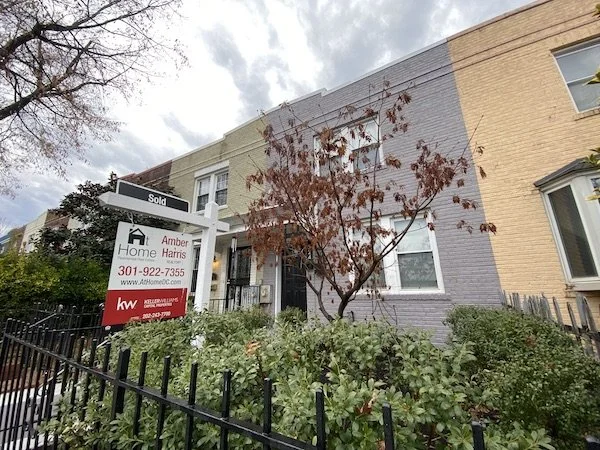When you decide it’s time to find a new owner for your home — whether you are moving up, relocating or otherwise, once you get past the emotion and nostalgia, you likely are most focused on maximizing your return on this important investment and doing so on your terms (including finding a buyer quickly).
As both a real estate agent and decorator, I work closely with each of my clients to create a custom plan to sell their homes for top dollar swiftly. And, while each property and micro-market (location, price point, etc.) is slightly different, there are four key areas I always focus on that offer cost-effective opportunities to optimize a home for the sale — ensuring it’s the best presented option in its price range and location.
Read on for my top tips and check out a few before and afters to show you their power:
Paint & Your Overall Color Palette: Paint can be transformative and completely change the feel of a space — making it brighter, more welcoming and up-to-date (I’m looking at you yellow bathroom!). While walls are the focus, you also may want to consider painting cabinetry to say bye-bye to dated wood tones (think that original bathroom vanity in a honey tone) or just a fresh color on the front door to be on trend and intrigue buyers to schedule a tour. Another way to play with color is by changing textiles (which I often do when staging with client’s own furniture). A simple swap of a rug or set of throw pillows paired with neutral paint can transform a space and let you keep those red leather couches.
Lighting & Hardware Updates: Changing a light fixture or faucet is a simple job for a handy homeowner or a hired professional, allowing you to banish dated brass candelabras and signal a contemporary feel for buyers. Even easier is changing knobs and pulls on cabinetry (or adding them if they aren’t installed)…and, when you do both together, magic! There are so many cost-conscious fixtures available from Wayfair and other online retailers, so there’s no need to hesitate!
This home sold for for more than 14% above list with seven offers (and set a new neighborhood record). We updated the palette with fresh paint and some new textiles, built on the iron railing by adding a matte black chandelier and ceiling fan and banished that wallpaper and chair rail in the dining room..voilà!
Simplify & Streamline: Many design features are associated with a certain era (unnecessary pony walls, anybody?), and sometimes it makes sense when you are painting and making other updates to strip these away. For example, a chair rail can be beautiful but may date a dining room, and old window treatments and hardware may have seen better days (and won’t be needed by you much longer or at all). Other easy updates include removing wall mounted storage (like that shelf above a window or the cabinet above your toilet). You may have installed them to give you more room for all your things…but they also may signal to the buyer this space may not work for them.
Surface Transformations: A dated bathroom may be ready for a larger refresh, but that may not provide the ROI you need (or work on your timeline). Instead consider updating the laminate vanity countertop with a new quartz one, re-glazing an older tub and/or swapping out the entire vanity set. You also may want to remove a dated kitchen backsplash and/or add a new one to create a fresh look. While a little more involved, when paired with some of the tips above, a refresh vs. a full renovation may just what the doctor, err agent, ordered!
A pre-fab vanity with matching mirror from Home Depot was an inexpensive update (along with paint and removing an extra cabinet) that dramatically changed the way this en suite bathroom showed.
Looking for custom tips as you think about your next chapter? Reach out today for a virtual or in-person, no pressure consultation (bonus: these recommendations are equally as rewarding if you are staying in your home but watching your budget)!
Amber Harris is the owner of At Home DC, an interior decorator and a licensed real estate agent with Keller Williams Capital Properties working with clients in DC, Maryland and Virginia.














